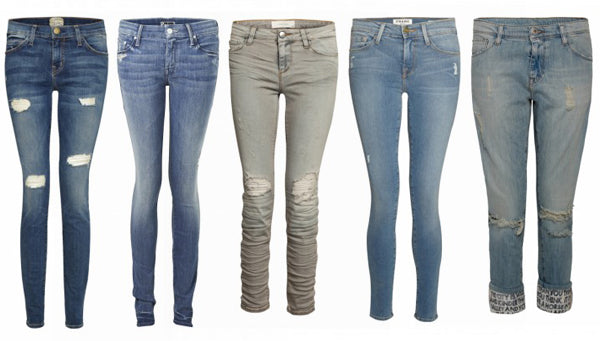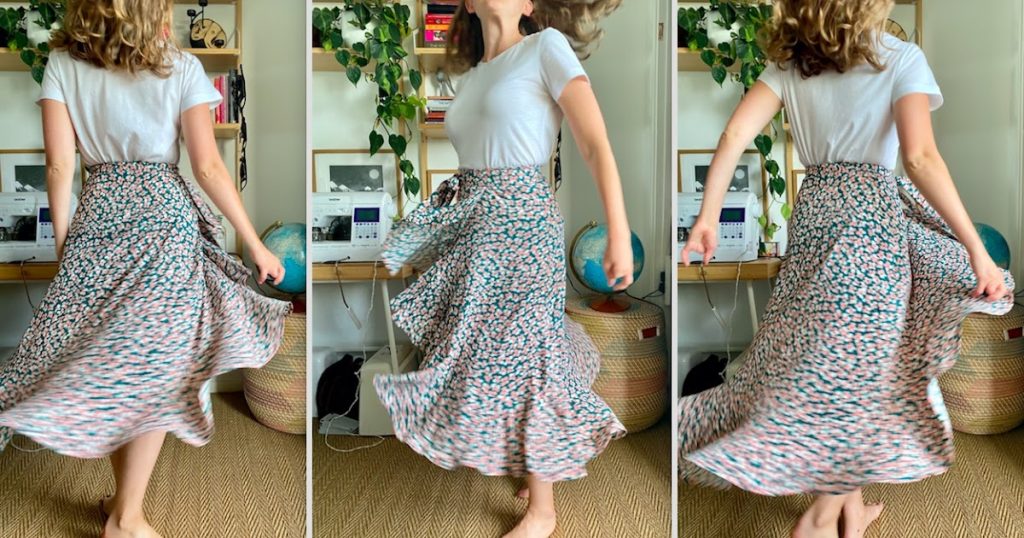“Revolutionizing Bangladesh’s RMG Sector: Enhancing Sustainability, Worker Welfare, and Safety for a Brighter European Fashion Future”
The Bangladesh RMG (Ready-Made Garments) sector is currently under heavy scrutiny in Europe, with the implementation of sustainable practices, worker welfare, and safety improvements in the factories being the most trending topic. The Rana Plaza collapse of 2013 has led to increased calls for better working conditions and safety measures in the Bangladeshi garment industry. In addition to this, there is a strong focus on minimizing the environmental impact of the sector by reducing waste, water usage, and carbon emissions. European consumers and retailers are advocating for greater transparency and accountability in the supply chain, leading to initiatives such as the Accord on Fire and Building Safety in Bangladesh and the Bangladesh Garment Manufacturers and Exporters Association (BGMEA)’s efforts to improve labor conditions.
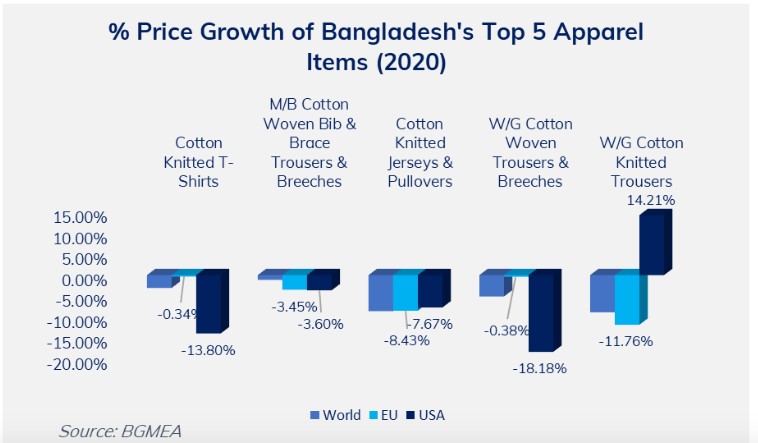
Sustainability:
Bangladesh’s RMG sector has been making significant progress in its sustainability efforts by adopting eco-friendly production methods, reducing carbon footprints, and minimizing waste. The industry is focusing on reducing its environmental impact by investing in renewable energy sources such as solar panels, wind turbines, and biomass energy. Additionally, the sector is making efforts to conserve water and recycle wastewater by implementing closed-loop systems. The goal is to reduce water usage and minimize water pollution caused by the industry.
The Bangladesh RMG sector is also investing in recycling initiatives to minimize waste and reduce the industry’s reliance on virgin resources. This includes using recycled polyester, which is made from recycled plastic bottles, and upcycling waste materials to create new products. The sector is also exploring circular economy models, where materials are kept in use for as long as possible, and waste is eliminated.
These sustainability efforts not only cater to the increasing global demand for sustainable fashion but also help European brands meet their sustainability goals. The industry’s focus on sustainability is also helping to improve the lives of workers by providing them with safe working conditions, fair wages, and job security. Overall, it is encouraging to see the Bangladesh RMG sector prioritizing sustainable practices and taking steps towards a more sustainable future.
Bangladesh’s RMG sector has been making significant progress in its sustainability efforts by adopting eco-friendly production methods, reducing carbon footprints, and minimizing waste. The industry is focusing on reducing its environmental impact by investing in renewable energy sources such as solar panels, wind turbines, and biomass energy. Additionally, the sector is making efforts to conserve water and recycle wastewater by implementing closed-loop systems. The goal is to reduce water usage and minimize water pollution caused by the industry.
The Bangladesh RMG sector is also investing in recycling initiatives to minimize waste and reduce the industry’s reliance on virgin resources. This includes using recycled polyester, which is made from recycled plastic bottles, and upcycling waste materials to create new products. The sector is also exploring circular economy models, where materials are kept in use for as long as possible, and waste is eliminated.
These sustainability efforts not only cater to the increasing global demand for sustainable fashion but also help European brands meet their sustainability goals. The industry’s focus on sustainability is also helping to improve the lives of workers by providing them with safe working conditions, fair wages, and job security. Overall, it is encouraging to see the Bangladesh RMG sector prioritizing sustainable practices and taking steps towards a more sustainable future.
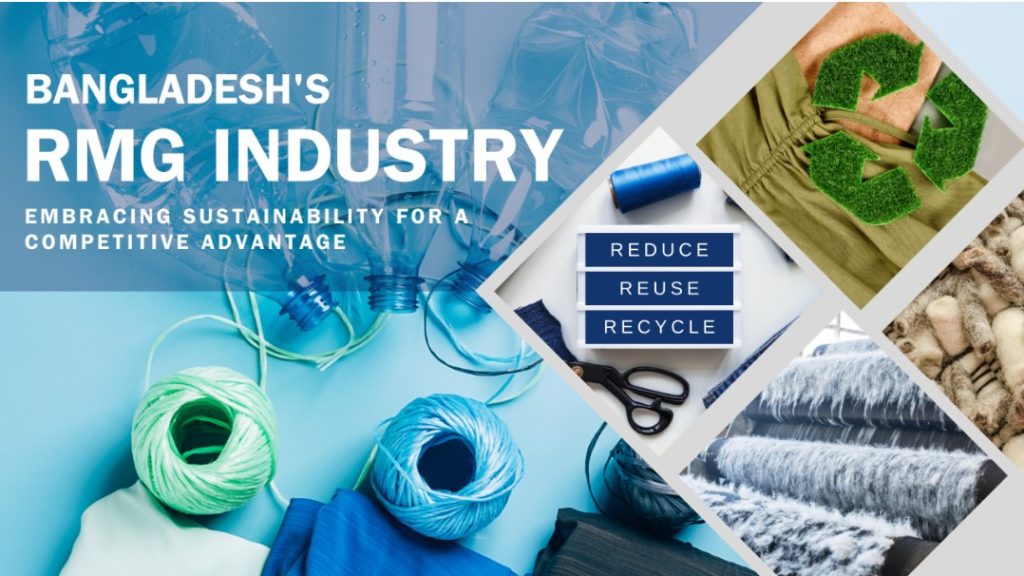
Worker Welfare:
Improving worker welfare is a critical aspect of the revolution taking place in the RMG sector. Bangladesh has been working tirelessly to implement fair labor practices, ensuring living wages, providing safe working conditions, and offering skill development programs. These initiatives are aimed at boosting worker morale and productivity while also aligning with the European Union’s labor standards.
Bangladesh’s efforts in improving worker welfare are commendable, and the industry has made significant progress in this regard. The country has put in place regulations and laws to protect workers’ rights, including the right to form unions and collective bargaining. Additionally, many factories have invested in safety measures, including fire safety, building safety, and emergency response systems.
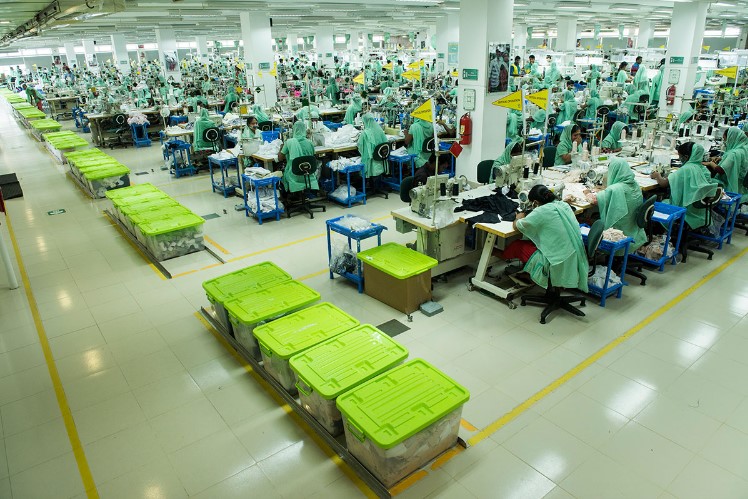
Moreover, the RMG sector in Bangladesh has been providing workers with skill development programs, which help them improve their skills and become more productive. This not only benefits the workers but also the industry as a whole, making it more competitive in the global market.
These initiatives are in line with the European Union’s labor standards, making it easier for European brands to collaborate with Bangladeshi factories. As a result, we are witnessing an increasing number of collaborations between European brands and Bangladeshi factories that prioritize worker welfare and sustainable practices, leading to a brighter future for both workers and the industry.
Safety Measures:
In the wake of the Rana Plaza incident in 2013, Bangladesh has demonstrated commendable commitment towards the safety of its workers in the RMG sector. The country has implemented stringent safety measures, including regular inspections, fire safety training, and emergency evacuation drills, which have now become common practices. Furthermore, the government and industry stakeholders have worked together towards establishing comprehensive safety guidelines and protocols, which have enhanced the credibility of Bangladeshi factories in the eyes of European fashion brands. It is heartening to see such responsible actions being taken towards ensuring the welfare of workers and promoting ethical and sustainable practices in the industry.
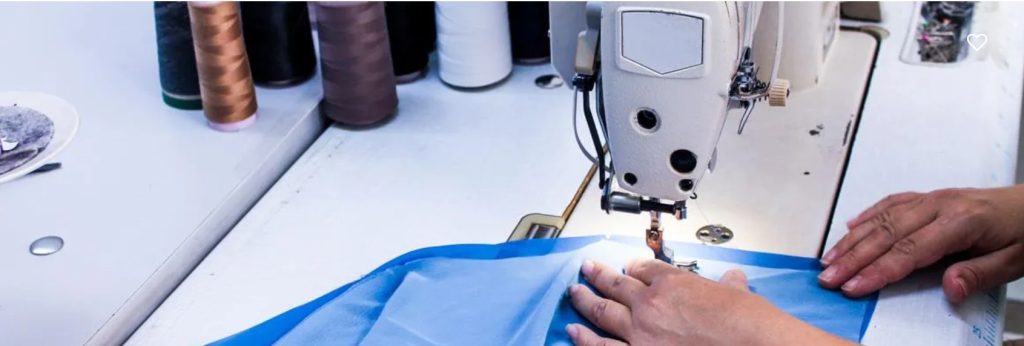
How to Increase Sustainability in RMG :
To enhance sustainability in Bangladesh’s RMG sector, a multi-faceted approach is necessary. Key strategies include encouraging eco-friendly production practices, promoting transparency and accountability in the supply chain, providing worker training, fostering innovation, and collaborating with international partners. By adopting such strategies, we can create a more sustainable and responsible RMG industry in Bangladesh.
Eco-friendly Production Methods:
Encourage and support the adoption of sustainable production methods, such as using renewable energy sources, water conservation techniques, and waste reduction practices. This can be achieved by providing financial incentives, training programs, and technological support to factories willing to transition to eco-friendly production methods.
Sustainable Materials and Packaging:
Promote the use of sustainable materials like organic cotton, recycled polyester, and biodegradable fabrics. Encourage factories to minimize plastic packaging and adopt eco-friendly alternatives like biodegradable or recyclable materials.
Supply Chain Transparency:
Implement supply chain transparency practices to ensure that all factories adhere to sustainable production standards. This can be achieved through regular audits, monitoring, and reporting of environmental and social performance.
Collaboration with International Brands and Retailers:
Partner with international brands and retailers to promote sustainable practices in the RMG sector. This collaboration can lead to joint initiatives, capacity building, and knowledge sharing, ultimately driving sustainability improvements across the industry.
Government Policies and Regulations:
Develop and enforce strong environmental and social policies and regulatory frameworks that support sustainable practices in the RMG sector. This includes setting clear targets, providing guidelines, and enforcing penalties for non-compliance.
Worker Awareness and Training:
Increase awareness among RMG workers about the importance of sustainability and provide them with necessary training on eco-friendly production methods and waste management practices.
Research and Development:
Invest in research and development to discover innovative sustainable solutions and technologies that can be implemented in the RMG sector. This can be achieved through collaborations with academic institutions, research organizations, and international partners.
Public-Private Partnerships:
Establish public-private partnerships to drive sustainable initiatives in the RMG sector. These partnerships can pool resources, share knowledge, and create a conducive environment for sustainable growth in the industry.
Capacity Building and Skill Development:
Provide training and capacity building programs for RMG factory owners, managers, and workers to enhance their understanding of sustainable practices and improve their skills in implementing these practices.
Monitoring and Evaluation:
Regularly monitor and evaluate the progress of sustainability initiatives in the RMG sector to identify areas for improvement and ensure that the implemented strategies are effective.
Enhancing Sustainability and Maintaining Worker Welfare in Bangladesh’s RMG Sector: Strategies for a Brighter Future
Adopting Eco-Friendly Production Methods: Encourage factories to adopt sustainable production methods, such as using organic cotton, recycled materials, and biodegradable packaging. This will not only reduce the environmental impact but also cater to the growing demand for sustainable fashion globally.
Investing in Renewable Energy: Promote the use of renewable energy sources like solar and wind power in RMG factories. This will help reduce carbon emissions and contribute to a greener future.
Waste Management and Recycling: Implement proper waste management systems and encourage recycling initiatives within factories. This will help minimize waste generation and promote a circular economy within the RMG sector.
Collaboration with International Brands and Organizations: Partner with international brands and organizations to share best practices, knowledge, and resources for enhancing sustainability in the RMG sector.
Government Policies and Incentives: Develop and implement policies and incentives that encourage factories to adopt sustainable practices. This may include tax breaks, subsidies, or other financial incentives for adopting eco-friendly technologies and processes.
II. Maintaining Worker Welfare in Bangladesh’s RMG Sector
Fair Labor Practices: Ensure that factories adhere to fair labor practices, including paying living wages, providing reasonable working hours, and offering equal opportunities for employees regardless of their gender, race, or religion.
Safe Working Conditions: Regularly inspect factories to ensure they meet safety standards and address any potential hazards. This includes proper ventilation, fire safety measures, and emergency evacuation plans.
Skill Development Programs: Implement skill development programs to empower workers with the necessary skills to advance in their careers within the RMG sector. This will not only improve their job satisfaction but also contribute to the overall growth of the industry.
Worker Engagement and Communication: Encourage open communication between workers and management to address concerns, grievances, and suggestions for improvement. This will help create a positive work environment and foster a sense of ownership among employees.
International Collaboration and Certifications: Partner with international organizations to obtain certifications that demonstrate adherence to global labor standards. This will help build trust with international brands and ensure a sustainable future for the RMG sector in Bangladesh.
How to ensure the safety in RMG :
The safety of workers in Bangladesh’s Ready-Made Garment (RMG) sector has been a critical concern following the tragic Rana Plaza incident in 2013. Implementing robust safety measures is essential not only for the well-being of workers but also for the long-term growth and sustainability of the RMG sector. This article discusses a comprehensive approach to implementing safety measures in Bangladesh’s RMG industry, ensuring a secure and thriving future for all stakeholders.
I. Regular Inspections and Audits
Conduct frequent inspections of RMG factories to identify potential hazards and ensure compliance with safety standards.
Engage independent third-party organizations to perform audits and provide unbiased assessments of safety measures and practices.
Share the findings of these inspections and audits with factories, providing them with actionable feedback to improve their safety performance.
II. Training and Awareness Programs
Develop and implement mandatory safety training programs for workers, supervisors, and management teams.
Cover topics such as fire safety, emergency evacuation procedures, and first aid in these training sessions.
Regularly update training materials to reflect the latest safety guidelines and best practices.
Encourage active participation from workers and management during these sessions to foster a safety-conscious culture within the RMG sector.
III. Emergency Preparedness and Response
Establish clear and well-communicated emergency evacuation plans for all factories.
Conduct regular emergency drills to ensure workers are familiar with evacuation procedures and can respond effectively in case of an emergency.
Provide workers with access to safety equipment such as fire extinguishers, fire blankets, and first aid kits.
Develop partnerships with local emergency response agencies to ensure prompt and efficient assistance in case of an accident or disaster.
IV. Collaboration and Partnerships
Collaborate with international brands, organizations, and governments to share knowledge, resources, and best practices for enhancing safety measures in the RMG sector.
Participate in global initiatives such as the Accord on Fire and Building Safety in Bangladesh and the Alliance for Bangladesh Worker Safety to demonstrate commitment to safety standards and gain credibility with international partners.
Encourage open communication between factories, workers, and international stakeholders to address safety concerns and continuously improve safety measures.
V. Continuous Improvement and Monitoring
Establish a system to regularly monitor and evaluate the effectiveness of safety measures and practices in the RMG sector.
Use the findings from these evaluations to identify areas for improvement and implement corrective actions.
Encourage factories to adopt a culture of continuous improvement, where safety remains a top priority.
Conclusion :
The future of Bangladesh’s Ready-Made Garment (RMG) sector lies in its ability to revolutionize itself, becoming more sustainable, worker-centric, and safe. This transformation will not only benefit the local industry but also contribute to a brighter European fashion industry by fostering a more responsible and transparent global supply chain.
By adopting eco-friendly production methods, investing in renewable energy, and implementing proper waste management systems, the RMG sector can significantly reduce its environmental impact. This commitment to sustainability will resonate with European consumers who are increasingly conscious of their ecological footprint and demand sustainable fashion choices.
Ensuring worker welfare through fair labor practices, safe working conditions, skill development programs, and open communication channels between workers and management will not only improve the quality of life for RMG workers but also enhance the industry’s reputation globally. This, in turn, will encourage European brands to strengthen their partnerships with Bangladeshi factories, fostering a more stable and prosperous relationship.
Lastly, implementing robust safety measures and regularly inspecting factories will create a secure environment for workers and contribute to the long-term growth and sustainability of the RMG sector. By addressing safety concerns, the industry can demonstrate its commitment to responsible practices, further solidifying its position in the European fashion supply chain.
In conclusion, revolutionizing Bangladesh’s RMG sector through sustainable practices, worker-centric policies, and robust safety measures will pave the way for a brighter future for the local industry and contribute to a more responsible and transparent European fashion industry. This transformative journey will benefit all stakeholders involved and set an example for other countries in the global fashion landscape.























.jpg)




